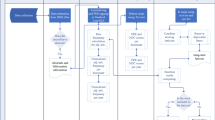Abstract
Okulicz-Kozaryn (Scientometrics 96:679–681, 2013) examined the readability issue in terms of the proportions of adjectives and adverbs in research articles. The results showed that natural scientists used the lowest proportion of adjectives and adverbs, while social scientists employed more adjectives and adverbs than natural scientists. Based on the findings, he argued for killing much of the adjectives and adverbs in academic writing for brevity and conciseness. However, adjectives and adverbs serve different functions in academic writing. Thus, the present study investigated the use of adjectives and adverbs separately with a much larger set of academic writing of various genres and a subsample of only research articles. The results indicated that the proportions of adjectives in natural science and applied science are higher than those in arts and humanities and social science, while the proportions of adverbs in natural science and applied science are lower than those in arts and humanities and social science. The results seemingly complemented Okulicz-Kozaryn’s (2013) findings. It is accordingly suggested that researchers in arts and humanities and social science should use less adverbs in academic writing. Issues concerning readability and impact of articles are also discussed.






Similar content being viewed by others
References
Armstrong, J. S. (1989). Readability and prestige in scientific journals. Journal of Information Science, 15, 123–124.
Flesch, R. (1948). A new readability yardstick. Journal of Applied Psychology, 32, 221–223.
Gazni, A. (2011). Are the abstracts of high impact articles more readable? Investigating the evidence from top research institutions in the world. Journal of Information Science, 37(3), 273–281.
Hartley, J. (2000). Clarifying the abstracts of systematic literature reviews. Bulletin of the Medical Library Association, 88, 332–337.
Hartley, J., Trueman, M., & Meadows, A. J. (1988). Readability and prestige in scientific journals. Journal of Information Science, 14, 69–75.
Huang, K. (2015). More does not mean better: Frequency and accuracy analysis of lexical bundles in Chinese EFL learners’ essay writing. System, 53, 13–23.
Lu, X. (2010). Automatic analysis of syntactic complexity in second language writing. International Journal of Corpus Linguistics, 15, 474–496.
Marroquin, A., & Cole, J. H. (2015). Economical writing (or, ‘Think Hemingway’). Scientometrics, 103(1), 251–259.
Metoyer-Duran, C. (1993). The readability of published, accepted, and rejected papers appearing in college and research libraries. College and Research Libraries, 64, 517–526.
Okulicz-Kozaryn, A. (2013). Cluttered writing: Adjectives and adverbs in academia. Scientometrics, 96, 679–681.
Schmid, H. (1994). Probabilistic part-of-speech tagging using decision trees. In Proceedings of international conference on new methods in language processing. Manchester, UK.
Schmid, H. (1995). Improvements in part-of-speech tagging with an application to German. In Proceedings of the ACL SIGDAT-workshop. Dublin, Ireland
Shelley, M. C., & Schuh, J. H. (2001). Are the best higher education journals really the best? A meta-analysis of writing quality and readability. Journal of scholarly Publishing, 33, 11–22.
Zinsser, W. (2006). On writing well: The classic guide to writing nonfiction. New York: Harper Paperbacks.
Acknowledgments
This work was supported by National Social Science Fund of China (Grant No. 15BYY179). The author would extend his sincere appreciations to the anonymous reviewers for their insightful comments and suggestions.
Author information
Authors and Affiliations
Corresponding author
Appendices
Appendix 1: List of Cell articles
Clevers, H., & Nusse, R. (2012). Wnt/β-Catenin signaling and disease. Cell 149(6), 1192–1205.
Delmore, J.E., et al. (2011). BET bromodomain inhibition as a therapeutic strategy to target c-Myc. Cell 146(6), 904–917.
Hanahan, D., & Weinberg, R.A. (2011). Hallmarks of cancer: The next generation. Cell 144(5), 646–674.
Laplante, M., & Sabatini, D.M. (2012). mTOR signaling in growth control and disease. Cell 149(2), 274–293.
López-Otín, C., et al. (2013). The hallmarks of aging. Cell 153(6), 1194–1217.
Mizushima, N., & Komatsu, M. (2011). Autophagy: Renovation of cells and tissues. Cell 147(4), 728–741.
Moore, K. J., & Tabas, I. (2011). Macrophages in the pathogenesis of atherosclerosis. Cell 145(3), 341–355.
Stephens, P. J., el al. (2011). Massive genomic rearrangement acquired in a single catastrophic event during cancer development. Cell 144(1) 27–40.
Valastyan, S., & Weinberg, R.A. (2011). Tumor metastasis: Molecular insights and evolving paradigms. Cell 147(2), 275–292.
Wang, H., et al. (2013). One-step generation of mice carrying mutations in multiple genes by CRISPR/Cas-mediated genome engineering. Cell, 153(4), 910-918.
Appendix 2: Sample codes

Rights and permissions
About this article
Cite this article
Lei, L. When science meets cluttered writing: adjectives and adverbs in academia revisited. Scientometrics 107, 1361–1372 (2016). https://doi.org/10.1007/s11192-016-1896-3
Received:
Published:
Issue Date:
DOI: https://doi.org/10.1007/s11192-016-1896-3




